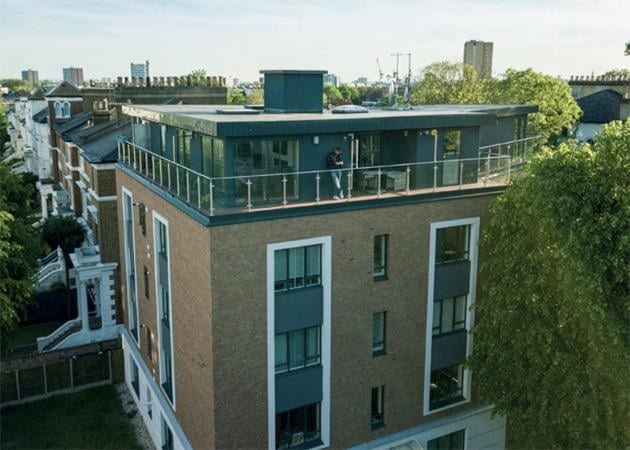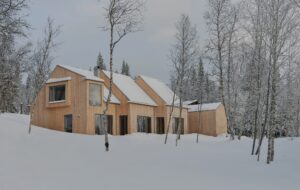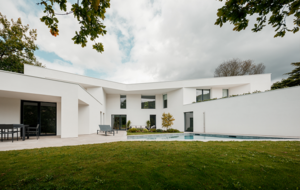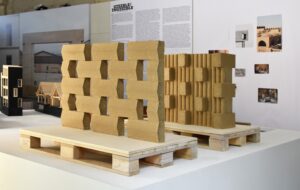Developers are eyeing up London’s rooftops as potential sites for thousands of new and affordable homes.
It’s estimated that the UK needs to build at least 3 million homes to solve the housing crisis. So it should come as welcome news that there’s potentially room for 180,000 new residences on existing rooftops in London alone.
‘London by and large is quite low-rise compared to most modern cities around the world,’ says Val Bagnall, managing director for Apex Airspace, a developer specialising in converting unused space atop existing properties. ‘We’re not talking about skyscrapers, we’re talking about modest one- and two-storey extensions to existing skylines,’ he explains. ‘So it’s not about creating some ugly blob, but something that can add value and is sustainable.’
Building basements has been a significant trend in London over the last decade. According to planning data by Halifax for 2012-16, that period alone saw a 183 per cent increase in planning applications for basement extensions in London. As subterranean living booms, using airspace is likely to be the next solution to capitalising on undeveloped pockets across the city in a property crisis.
Bagnall believes the idea is beneficial to all those involved: it offers landlords the chance to increase the value of their properties, while existing residents benefit from building improvements such as new entrances and lifts. ‘There’s a whole cascade of direct benefits to residents, at no cost to them,’ says Bagnall. ‘That’s proving to be quite compelling for leaseholders and freeholders in terms of value.’
The company works with architects on the designs of the new homes. These are then manufactured in a factory, so that they are almost entirely complete at the point of installation – everything from kitchens and bathrooms to electrics will already be in place. For this reason, Bagnall says that such modes of construction can deliver homes twice as quickly as traditional housebuilding, helping to minimise disturbance to residents and neighbours. ‘We see design as absolutely critical to what we do,’ he says.
The notion of building upwards is garnering plenty of support. Apex has secured £9 million in funding from the government’s housing accelerator, Home England, and a £10 million development loan from the Greater London Authority. Although it has only built a handful of projects so far, Apex had expected to have 300 new homes on site by September 2020, of which it said at least 50 per cent will constitute affordable housing, however, the coronavirus outbreak will have undoubtedly slowed down or halted many of these projects.


















